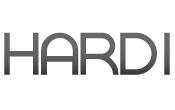Market Segment

January 21, 2020
HARDI: Demand Strong in January…But Will It Last?
Written by Tim Triplett
Acknowledging that “it’s a lot easier to sell steel when the price is going up,” distributors of steel products to the HVAC sector reported strong sales in the first month of the new year despite galvanized base prices that have risen by about $130 in the past 12 weeks to the current $800 per ton.
According to CRU data, the price of galvanized steel has averaged $38.70/cwt or $774 per ton over the past nine years, making today’s price fairly typical. Distributor inventories are somewhat higher than normal at 3.15 months of supply—most likely a combination of buying ahead of further price increases and seasonally weak shipments around the recent holidays.
Speaking on a conference call with members of the Heating, Air Conditioning & Refrigeration Distributors International (HARDI) earlier today, John Packard, president and publisher of Steel Market Update, noted that the spread between the base price of hot rolled steel and galvanized steel is now around $190 per ton, $30-50 more than the historical average. “That will change,” Packard said. “The question is, will hot rolled prices move higher or will galvanized move lower?”
Steel Market Update data shows lead times for deliveries of galvanized spot orders averaging 7.26 weeks, depending on the mill, the longest lead time since third-quarter 2018. “Whether that lead time grows further or shrinks back is the question of the day. The longer the lead times, the stronger the market, and the better chance the mills have of collecting higher prices,” Packard said.
Adding to the likelihood that galvanized steel prices will rise even further, domestic steelmakers are seeing little competition from low-priced imports. Galvanized imports are now around 177,000 tons per month, down from a monthly average of 229,000 in the past two years and a five-year average of 256,000 tons.
“January started off strong, so inventories should come down. In my mind we are probably at a balanced inventory level, but we will have to see where it goes from here,” Packard said.
One distributor in the Southeast said his company has seen better sales than are typical in January. “We attribute the uptick to larger buys by some customers in response to rising prices. It also may reflect the lower shipping days in December. But underlying demand is decent. Contractors show backlogs of work.”
He estimates the steel mills have collected around $120-130 of the $190 in price increases they have announced in the past three months. “The market has collected well beyond what I would have expected in October. But I feel we are nearing the height of this price cycle,” the HARDI member said.
He is keeping a close eye on the relationship between CRU-based contract prices and spot prices. As spot prices have increased, contract tons have had an advantage over spot tons, so buyers have been maxing out their contracts. But contract prices are catching up and that spread is beginning to narrow. “I would expect contract buyers to begin pulling back some, shrinking lead times,” he said.
January demand is substantially better compared with the same month in 2019, reported another executive on the call. “We hope it maintains through the first quarter, and through the year.”
The question is whether current demand is inflated by customers stocking up ahead of rising prices and pent-up orders from the holiday slowdown, as well as discounting by some service centers to grab market share. “The dilemma we all face is dealing with competitors who sell with no regard for their replacement cost. How much of that is impacting what we are seeing in demand?” asked one executive.
“We are talking about 2020 being a growth year. We just have to convince customers that the market is changing, that the street price will catch up with the market price. We are hoping demand remains strong,” said another.
Steel Market Update participates in a monthly steel conference call hosted by HARDI. The call is dedicated to a better understanding of the galvanized steel market. The participants are HARDI member companies who are wholesalers, service centers and manufacturing companies that either buy or sell galvanized sheet products used in the HVAC industry.







